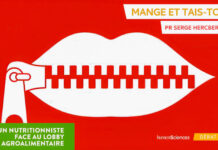The presentation of foods and/or their ingredients as ‘natural‘, in labels and advertisements, is widespread in every corner of the planet.
The concept of ‘natural‘ is entirely ambiguous, in the EU, in foods as in other categories of Fast Moving Consumer Goods (FMCG, e.g., cosmetics).
Current norms in various international markets, for that matter, tend in turn to endorse viral deception. Viral deception.
1) Natural foods v. ultra-processed.
The call for ‘naturalness‘ in food products today is mainly in response to consumer concern about ultra-processed foods. Which are often characterized as junk food due to unbalanced nutritional profiles, the consumption of which is associated with increased risks of serious and chronic diseases. (1)
Therefore, ‘natural‘ foods are identified, first and foremost, with agricultural raw materials that have not been processed, i.e., subjected to minimal processing, using traditional methods, without the addition of chemically synthesized additives. In fact, the ISO/TS 19657:2017 technical specification is articulated on these assumptions, as noted, even though it applies only to B2B relationships. (2)
2) ‘Natural‘ foods, EU rules.
The Food Information Regulation, reg. EU 1169/11, merely establishes the general criteria to be followed in consumer information. Transparency, in labeling and advertising, postulates the truthfulness (and demonstrability) of the information provided about food products. And their expression clear, unambiguous, understandable to the average consumer (EU reg. 1169/11, Articles 7 and 36).
The European Commission may adopt delegated acts ‘to ensure that consumers are adequately informed when food business operators provide voluntary food information that is conflicting and likely to mislead or confuse the consumer‘ (EU Reg. 1169/11, Art. 36.4). But repeated reminders from civil society have so far fallen on deaf ears. (3)
3) England
FSA, Food Standards Agency, recommends restricting the use of the claim ‘natural‘ to products exclusively composed of natural ingredients, that is, produced by nature.
It is misleading to use this term to describe foods or ingredients whose composition has been modified through the use of chemicals or include products of ‘new technologies.’ Including additives and flavorings produced by the chemical industry or extracted by chemical processes. (4)
Instead, the term ‘products with natural ingredients‘ can be used to describe compound foods where all ingredients are natural, unadulterated by the use of chemicals, at most undergoing traditional fermentation processes.
4) Ireland
FSAI, Food Safety Authority of Ireland, in turn clarifies the use of a number of expressions in food marketing. These include the wording ‘natural‘ and variations on the theme, e.g., ‘naturallybetter‘, ‘natural goodness‘. (5) Recalling the prohibition against attributing characteristics to a food that are common to those of other products in the same category (EU Reg. 1169/2011, Article 7.1.c).
A minimally processed single-ingredient food can therefore only be called ‘natural‘ if it is distinguished by this characteristic from all similar foods. Compound foods, because they are processed by humans, cannot be considered ‘natural‘.
‘Made with natural ingredients‘ is the only permissible designation for compound foods that therefore differ from similar products, provided they meet all of the following criteria:
- only natural ingredients, not subjected to significant human interference,
- ingredients and final product free of additives, outside of those obtained from natural sources (e.g., plants) subjected to physical and/or ‘traditional’ processes (including distillation and solvent extraction) and natural flavors.
5) USA
Three petitions have been submitted by theCenter of Science for the Public Interest (CSPI) to theFood and Drug Administration (FDA), starting in 2014, seeking a regulation-or rather a ban-on the use of the term ‘natural‘ in food marketing.
FDA-abstaining from adopting appropriate regulations-has made it clear that labeling a food as ‘natural‘-postulates the absence of artificial or synthetic ingredients. However, without addressing some crucial issues raised by CSPI such as the use of pesticides, and some technologies (e.g., irradiation). (6)
6) Canada
Health Canada
clarified the conditions of use of the term ‘natural,’ stating that foods and ingredients so designated:
- Are free of added vitamins and minerals, additives and unnatural flavorings,
- have not been subjected to significant removal or modification of any component or its fraction, except for water reduction,
- are made without processing that has significantly altered their original physical, chemical or biological state (intensive processing).
Processes that do not significantly alter the original physical, chemical or biological state of the food (minimal processing) would be recognized as ‘natural‘. So do flavoring substances derived from plant and/or animal sources. With some exceptions. (7)
7) Australia
‘Nature,‘ ‘natural,’ ‘mother nature,’ or ‘natural method‘ are terms that can be misused on food and beverage labels. Even when based on technical norms, codes or standards.
AAAC, Australian Competition and Consumer Commission, then pointed out:
– the need to put oneself ‘in the consumer’s shoes’ to verify that the claim is not likely to mislead the consumer,
– the opportunity to better circumstantiate on the label the meaning of ‘natural‘. With the addition, for example, of wording such as ‘contains no food additives’, or ‘without artificial preservatives‘. (8)
8) Israel
The Ministry of Health in Israel distinguishes ‘natural‘ food products from those made ‘with natural ingredients.’
– a single-ingredient food may be labeled as ‘natural,’ without accompanying wording, provided it has not undergone processes other than those specified in the Standard,
– the designation of a ‘natural ingredient‘ is permitted when it is made from matrices that meet the above criteria and other processes specified in the Standard,
– a food product consisting of two or more ‘naturalingredients,’ and containing no non-natural ingredients, can be presented as ‘with natural ingredients,’ not also as ‘natural,
– foods that contain an ingredient (e.g., flavor) that is not natural may only include the word ‘natural‘ in the ingredient list, after the name of the components that meet the requirements of the Standard,
– a synthetic ingredient may be referred to as ‘similar to natural’ when there is identity in chemical composition with a ‘natural component‘ in the ingredient list alone (9,10).
9) Viral Deception
In the Old World , Viral Deception dominates supermarket shelves. The use of the term ‘natural‘-beyond the isolated industry regulations that specifically govern it (e.g., nutrition & health claims, mineral waters, flavorings)-is used with the greatest freedom and deceptiveness. Except for sporadic class actions and pronouncements national authorities in charge of protecting competition and the market. (11)
At the international level-in ISO/TS 19657 and the various standards cited above-the requirements for designating a food as ‘natural‘ are actually limited to the processing stage. The deception of presenting consumers as ‘natural‘ is thus legitimized:
- plant-based foods grown with glyphosate and/or toxic pesticide cocktails, perhaps even from GMO monocultures on areas subject to deforestation and land robbery,
- products derived from animals treated with antibiotics (and growth hormones, as well as fed animal meal, in the Americas),
- Redundant, excessive, unsustainable packaging.
10) The only possible solution
The only possible solution is to bind the use of these claims to organic products only, the only ones that can claim genuine ‘naturalness‘ on the basis of cogent regulations and internationally recognized certifications.
Dario Dongo and Andrea Adelmo Della Penna
Notes
(1) Dario Dongo, Andrea Adelmo Della Penna. Ultraprocessed foods, the worst evil. Appeal of scientists in the British Medical Journal. GIFT (Great Italian Food Trade). 16.8.21
(2) Dario Dongo. Natural ingredients, the ABC to ISO standards. GIFT (Great Italian Food Trade). 11.1.19
(3) Dario Dongo, Marta Strinati. Claim ‘natural’ on label. Petition against deception. GIFT (Great Italian Food Trade). 26.11.20
(4) FSA. Criteria for the use of the terms fresh, pure, natural etc. in food labelling – Recommended criteria for the use of the term “Natural “. https://www.food.gov.uk/sites/default/files/media/document/markcritguidance.pdf (accessed 23.11.22)
(5) FSAI. New Guidance for the Use of Food Marketing Terms. 5/14/2015, https://www.fsai.ie/news_centre/press_releases/marketing_terms_14052015.html
(6) FDA. Use of the Term Natural on Food Labeling. 22.10.18, https://www.fda.gov/food/food-labeling-nutrition/use-term-natural-food-labeling (accessed on 23.11.22)
(7) Health Canada. Method of production claims on food labels. 6.7.22, https://inspection.canada.ca/food-labels/labelling/industry/method-of-production-claims/eng/1633011251044/1633011867095#c3 (accessed on 23.11.22)
(8) ACCC (2006). Food and beverage industry – Food descriptors guideline to the Trade Practices Act. %20descriptors%(accessed on 11/23/22)
(9) State of Israel. Food Label and Nutritional Labeling. Ministry of Health. https://www.health.gov.il/English/Topics/FoodAndNutrition/Nutrition/Adequate_nutrition/Pages/labeling.aspx (accessed on 11/23/22)
(10) A wording similar to that last mentioned was provided in dir. 88/388/EEC for ‘natural identical‘ synthetic flavorings(flavouring substances identical to natural substances). Category later eliminated by the next reg. EC 1334/08
(11) Marta Strinati, Dario Dongo. Pure and ‘100% natural’ with glyphosate? US consumers vs. Twinings. GIFT (Great Italian Food Trade). 21.7.19









